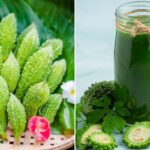Early Morning, Right After Waking Up
Reason: Body temperature is typically lower in the early morning, and blood vessels constrict due to the cold environmental temperature. Showering right after waking up, especially with cold water, can cause a sudden constriction of blood vessels, leading to increased blood pressure and the risk of stroke, especially in the elderly or those with a history of cardiovascular disease.
Recommendation: If you need to shower in the morning, wait for at least 30 minutes after waking up, use warm water, and keep your body warm after showering.
Noon, After a Hearty Meal
Reason: After eating, blood rushes to the digestive system to aid digestion. Showering at this time, especially with cold water, can interrupt blood circulation, putting strain on the heart and brain, and increasing the risk of stroke in those with weak health.
Recommendation: Avoid showering right after a meal. If necessary, wait for at least 1-2 hours after eating.

Late Evening, Before Bedtime
Reason: Showering late in the evening, especially if your hair isn’t completely dry before sleeping, can cause your body to catch a chill, constricting blood vessels and affecting blood circulation to the brain. This is especially dangerous for the elderly or those with underlying conditions like high blood pressure.
Recommendation: If you must shower in the evening, do so early (before 8 pm), use warm water, and ensure your hair is dry before going to bed.
After Intense Exercise or When Fatigued
Reason: When the body has just undergone intense exercise or is fatigued, the circulatory system is working at a high intensity to regulate temperature and provide oxygen. Showering at this time can cause heat shock, disrupting blood circulation and leading to dizziness, fainting, or even stroke.
Recommendation: Rest for at least 30 minutes to allow your body to stabilize before showering. Use warm water to avoid sudden temperature changes.

General Advice
Always use warm water when showering to avoid heat shock to your body.
Individuals with a history of cardiovascular disease, high blood pressure, or stroke should consult their doctors about the appropriate showering times.
Keep your body warm, especially your head and neck, after showering to prevent catching a chill.
Choosing the right showering times not only protects your health but also reduces the risk of serious issues like stroke. Pay attention to this habit to maintain your well-being!
“6 Amazing Health Benefits of Drinking Bitter Gourd Juice”
Bitter gourd juice is a nutritional powerhouse, offering a plethora of health benefits. This humble vegetable boasts an impressive nutritional profile, packed with essential vitamins and minerals that support overall wellness. From boosting immunity to regulating blood sugar, bitter gourd juice is a natural remedy with numerous advantages. Discover the fascinating world of bitter gourd juice and explore the myriad ways it can enhance your health and well-being.
“The Super Green: Uncovering the Ultimate Calcium-Rich Vegetable Hiding in Your Garden”
Calcium-rich foods are often associated with dairy products, but surprisingly, a humble vegetable like amaranth boasts twice the amount of calcium found in milk. Amaranth is an unsung hero in the world of nutrition, offering a plethora of health benefits beyond bone health. With its ability to lower blood fat, prevent cancer, and promote glowing skin, amaranth is a powerhouse vegetable that deserves a spotlight in any healthy diet.



































